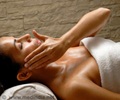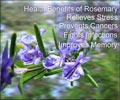A study by Taiwanese researchers have found that the fragrant essential oils, used in aromatherapy, may increase levels of exposure to potentially harmful indoor air pollutants.

Taiwanese researchers Der-Jen Hsu (National Kaohsiung First University of Science and Technology), Hsiao-Lin Huang (Chia-Nan University of Pharmacy and Science, Tainan), and Shiann-Cherng Sheu (Chang-Jung Christian University, Tainan) tested both fragrant and Chinese herbal essential oils for SOA formation in a controlled-environment study chamber under different test conditions. They also performed air sampling and analysis in spa centers that offer massage therapy using essential oils.
The authors compared SOA levels associated for the various fragrant and herbal essential oils tested and present their results in the article, "Characteristics of Air Pollutants and Assessment of Potential Exposure in Spa Centers during Aromatherapy." They conclude that the layout and ventilation within a particular spa may affect the level of indoor air pollutants produced during massage with aromatherapy.
"Dr. Der-Jen Hsu and his colleagues have done a very nice job in bringing attention to often overlooked health risks associated with luxuries intended to enhance our sense of well-being," says Domenico Grasso, PhD Editor-in-Chief and Vice President for Research, Dean of the Graduate College, University of Vermont (Burlington).
Source-Eurekalert












